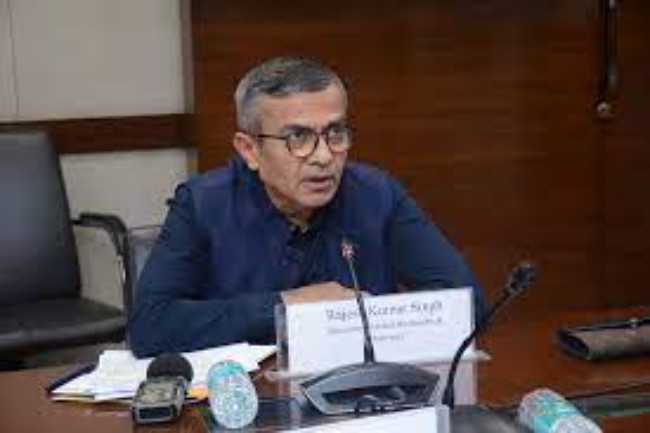
Centre not considering any new PLI schemes : DPIIT Secretary
NEW DELHI : The government will not expand the scope and coverage of its production-linked incentive scheme (PLI) during the ongoing fiscal year (2023-2024) and is likely to wait for the formation of a new central government next year to decide on enlarging the list of sectors getting incentives for building domestic manufacturing capabilities.
No new PLI Scheme is being considered by the government, as it feels the ongoing schemes are sufficient, Mr. Rajesh Kumar Singh, Secretary in the Department for Promotion of Industry and Internal Trade (DPIIT), the Commerce and Industry Ministry, said on Thursday.
“Right now, the kitty is sufficient, and this government feels the allocation is sufficient,” Singh said.“The output of PLI schemes this year (so far) is not as high as we expected, but the performance in terms of sales and exports has been reasonably good,” he added.
The focus of the government now is to strengthen and support the existing PLI schemes across 14 key sectors.
The decision not to add to the scope and coverage of the scheme will be a setback for sectors like port and shipping, heavy industries, steel and mining sectors, which were looking at new PLI schemes to manufacture import substitution products.
While the ministry of ports, shipping and inland waterways was working on a PLI scheme for manufacturing shipping-grade containers, talks were underway in the heavy industries ministry for having another incentive scheme for grid-scale battery storage manufacturing.
Another contender for the PLI scheme was the heavy earth moving machinery (HEMM) and underground mining equipment segment. A high-level committee had earlier recommended a five-year incentive scheme to boost domestic manufacturing of these equipment that are largely imported.
The steel sector was working on a proposal for another PLI scheme for manufacturing special steel and consumables.
“However, a few tweaks to existing schemes may be carried out,” Singh added.
During 2020, PLI schemes across 14 key sectors were announced with an outlay of ₹1.97 trillion (over $26 billion) to enhance manufacturing capabilities.
These 14 sectors included mobile manufacturing and specified electronic components; critical key starting materials/drug intermediaries and active pharmaceutical ingredients; manufacturing of medical devices; automobiles and auto components; pharmaceuticals drugs; specialty steel; telecom and networking products; electronic/technology products; white goods (ACs and leds); food products; textile products: MMF segment and technical textiles; high-efficiency solar PV modules; advanced chemistry cell (ACC) battery, and drones and drone components.
The purposes of the PLI schemes are to attract investments and cutting-edge technology across key sectors, ensure efficiency, and bring economies of size and scale in the manufacturing sector to make Indian companies and manufacturers globally competitive. These schemes also have the potential to significantly boost production, employment and economic growth over a five-year period.
At present, while all approved PLI schemes have been notified by the concerned ministries/ departments after due approval, these schemes are in various stages of implementation.
As of June 2023, 733 applications under the scheme across 14 sectors with an expected investment of ₹3.65 trillion were approved. About 176 MSMEs are among the PLI beneficiaries in sectors such as bulk drugs, medical devices, pharma, telecom, white goods, food processing, textiles and drones.

